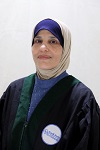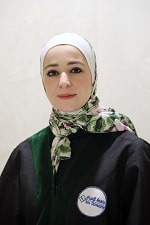كلية الآداب
Faculty Of Arts
Based on the university’s goals of providing educational opportunities for those wishing to enroll in university studies, and to enable those whose employment circumstances prevent them from having the opportunity to pursue their educational attainment to obtain the first university degree (Bachelor’s degree).
The organizational rules for the evening studies program were established based on the program instructions and standards issued by the Higher Education Accreditation Council, so that the program was established at the beginning of the academic year 2003/2004. The university was keen to provide the necessary services needed for students during their working hours in the evening.
Dear Students,
The idea of the evening studies program emanated from the need to achieve the goal of providing university education opportunities for workers in both the public and private sectors to complete their educational attainment, improve their scientific competence and career development.
Through this program, the university sought to overcome the obstacles facing everyone who wants to obtain a first university degree, thus taking advantage of its financial, academic and artistic capabilities.
Therefore, at the beginning of the academic year (2003/2004), the university began establishing the Deanship of Evening Studies to include many specializations that students can study according to the study schedules set by the faculties in the bachelor’s and master’s programs. The university offers an integrated program for obtaining bachelor’s and master’s degrees from 4 p.m. (00-8:00) pm.
Director of Evening Studies
Dr. Mohammed Abdel Fattah Abu Maal
|
President of the University Prof.Dr. Mohammad Mousa Hamed |
||
|
Director of Accreditation Office
|
Dean of the Faculty of Law Dr. Mahmoud Al Shawabkeh |
Dean of Student Affairs Prof. Belal Al-Sakarneh
|
|
Educational Sciences Faculty Dr. Intisar Tannous |
Engineering Faculty Dr. Ismail Hadeb |
Arts Faculty
|
|
Dr. Yazan Oroud |
Dr. Mohammed Abu Hashish |
Dr. Ihsan Eriqat
|
|
Dr. Monther Tarawneh |
Allied Medical Sciences Faculty Dr. Dalia Ali |
Pharmacy Faculty Dr. Israa Al Omari |
|
Secretary of Council Ikhlas Al Mukahel |
|
Program Learning Outcomes describe what students are expected to know and be able to do by the time of graduation. These relate to the knowledge, skills, and behaviours that students acquire as they progress through the program. A graduate of the (Master degree in Smart Business) program will demonstrate: |
Descriptors** |
|||
|
K |
S |
C |
||
|
1. |
Clarify contemporary management theories, methods, and methodologies. |
√ |
|
|
|
2. |
Use critical thinking and solve advanced managerial problems. |
|
√ |
|
|
3. |
Apply scientific research skills, use technological software, and write research papers in various administrative fields. |
|
|
√ |
|
4. |
Apply effective communication skills in various contexts, both orally and in writing. |
|
|
√ |
|
5. |
Work as an effective leader and within one team. |
|
|
√ |
|
6. |
Apply the dimensions of social and ethical responsibilities and legislation related to the business environment. |
|
|
√ |
|
Program Learning Outcomes describe what students are expected to know and be able to do by the time of graduation. These relate to the knowledge, skills, and behaviours that students acquire as they progress through the program. A graduate of the (__________________) program will demonstrate: |
Descriptors* |
|||
|
K |
S |
C |
||
|
1.
|
Explaining the various approaches and theories in the accounting fields. |
√ |
|
|
|
2.
|
Preparing, assessing and analysing data and using technical software to assist in making appropriate accounting decisions. |
|
√ |
|
|
3.
|
Using critical thinking and problem solving methods in accounting fields. |
|
√ |
|
|
4.
|
Applying effective communication skills in various oral and writing fields. |
|
|
√ |
|
5.
|
Working within one team. |
|
|
√ |
|
6.
|
Applying the social and ethical responsibilities’ dimensions and legislation related to the business environment
|
|
|
√ |


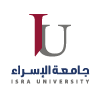





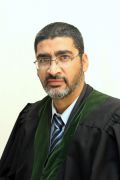
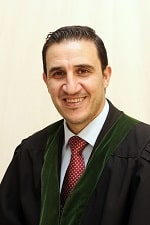
 Nursing Faculty
Nursing Faculty